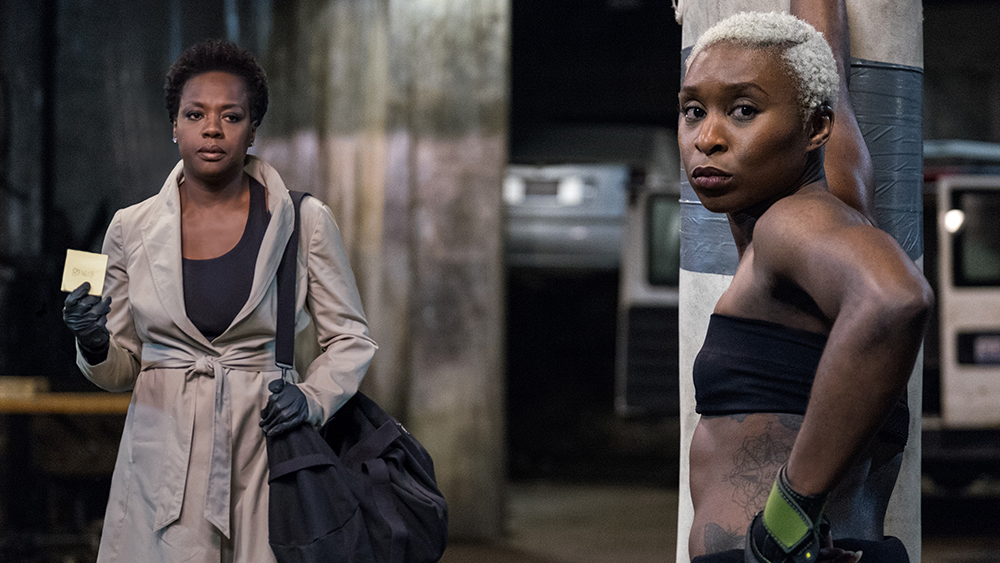New London Gang Moves Into Fresh H.Q., Hits Gender Targets
By Robert Mitchell
LOS ANGELES (Variety.com) – In its 62nd year the BFI London Film Festival saw a new management team face one of the festival’s biggest challenges, the absence of its flagship venue. Despite this, the 12-day event returns (Oct. 10-21) with a packed and vibrant lineup of 225 features representing 77 countries, including 21 world premieres and a program that sees 38% of titles directed or co-directed by female filmmakers and gender parity achieved in its official competition section — a feat that should make many other festival organizers blush.
This year’s festival sees Tricia Tuttle and Anne-Marie Flynn step into new roles as artistic director and managing director, respectively. The pair faced a major challenge from the outset when they discovered late last year that the 1,600-seat Odeon Leicester Square, which usually serves as the festival’s hub for gala premieres, would not be available in 2018 due to major refurbishment. The iconic venue delivered more than 35,000 admissions to the festival last year.
Flynn says alternatives were scarce given the exhibition business in the U.K. has left a paucity of large-scale venues. “So many cinemas are being carved up into smaller screens, so there are hardly any auditoria of any scale,” she says.
But the issue was not merely a question of capacity. “We could have looked at using multiple screens in a single multiplex venue for galas. That would satisfy capacity, but the collective experience for your audience is not the same. You have to think about many different factors. We will always put audiences and filmmakers as our priority.”
The festival’s biggest venue will be its returning pop-up Embankment Gardens site, an 800-seat venue first used in 2016. This will be supported by the first-time use of the 720-seat main screen at Cineworld Leicester Square and increased usage of other venues including the Vue West End, also located on Leicester Square. Flynn says approaching Cineworld was the first step in allowing the festival to retain a central hub. It then became “a matter of looking at the rest of the program and thinking about which films belonged where,” she says.
This year’s fest sees a slightly slimmed program from 2017’s 248 features, while competition strands have been reduced from 12 to 10, but Tuttle says this was not in reaction to capacity concerns: “It’s a purposeful toning of the festival and gives every film more breathing space. It was always something I wanted to do this year.”
A key change the pair have spearheaded is the choice to present awards to the winners of the festival’s official, first feature and documentary competition sections before a public audience. Tuttle says the move was designed to increase public awareness and make audiences feel more involved. The public can buy tickets for any of the three awards presentations, followed by a screening of the winning film. In previous years the awards were presented in front of an invited industry audience. “We’re really democratizing the awards,” says Flynn.
In programming Tuttle highlights the strong representation of films from women directors, saying finding new female voices in film is close to her heart. Where Cannes featured only three titles by female filmmakers in its competition section, and Venice came under criticism for only one, London has achieved gender-parity in both its official and shorts competition sections, while seeing 60% of its first feature competition come from female directors. Across the whole program 38% of films are directed or co-directed by women, including 30% of features and 50% of shorts. There is also strong representation for female-led stories headed by opening-night film “Widows.”
“We didn’t set out with that as an absolute,” says Tuttle of achieving gender-parity in competition sections without need of quotas, “but it was exciting when we saw that could become a possibility. We’ve genuinely found this incredibly rich talent.”
Tuttle says the film industry has woken up in recent years to the need for new, diverse and representative voices to be brought through and that audiences are responding to stories with diversity at their heart. “Every film that does well begets more,” says Tuttle. “It’s still early days but the evidence of the past three-four years suggests a real shift.”
TIPSHEET
WHAT: BFI
WHEN: Oct. 10-21
WHERE: Leicester Square, London
WEB:

